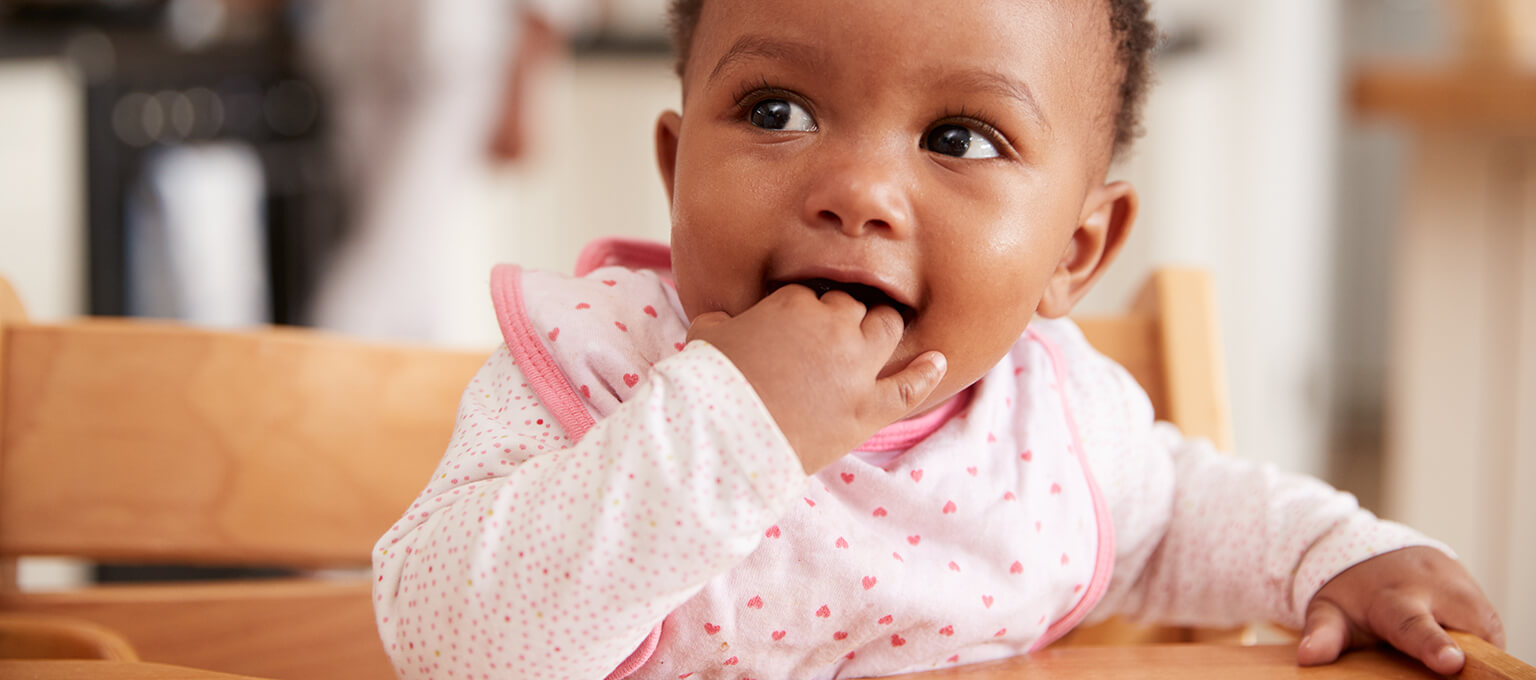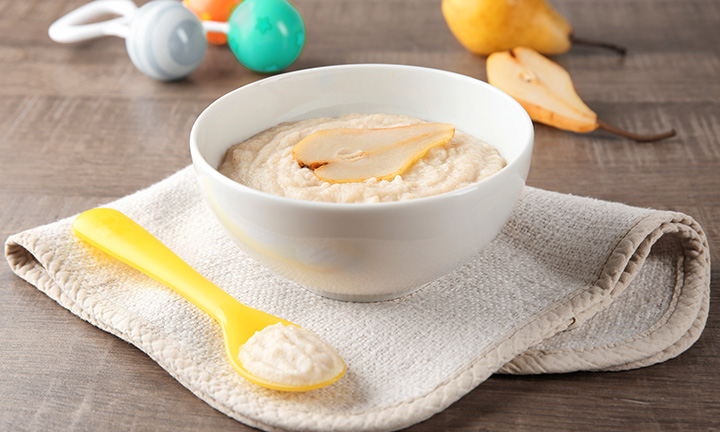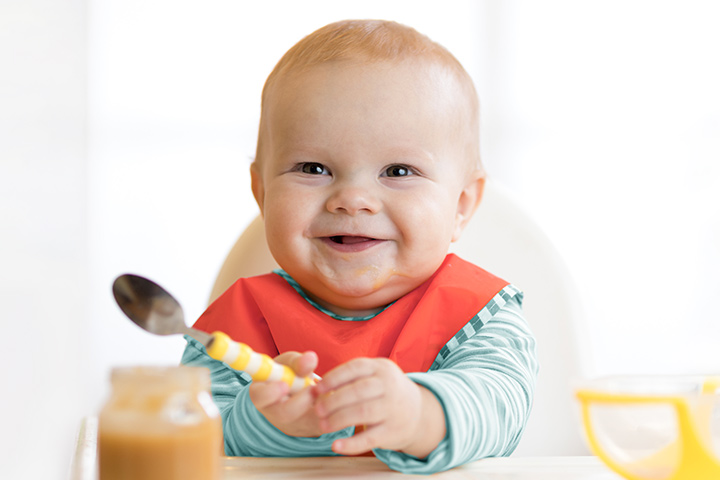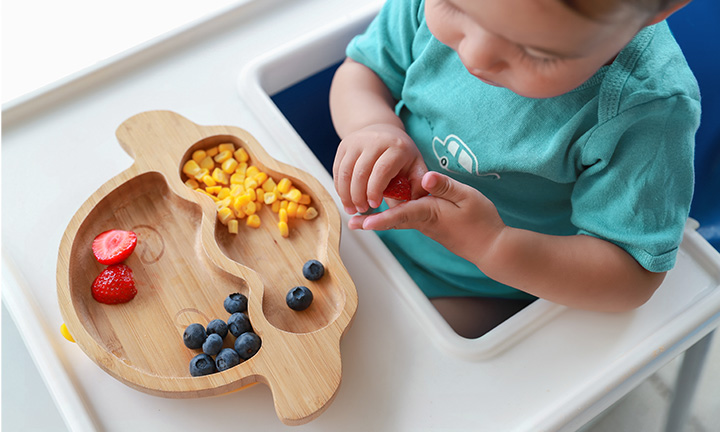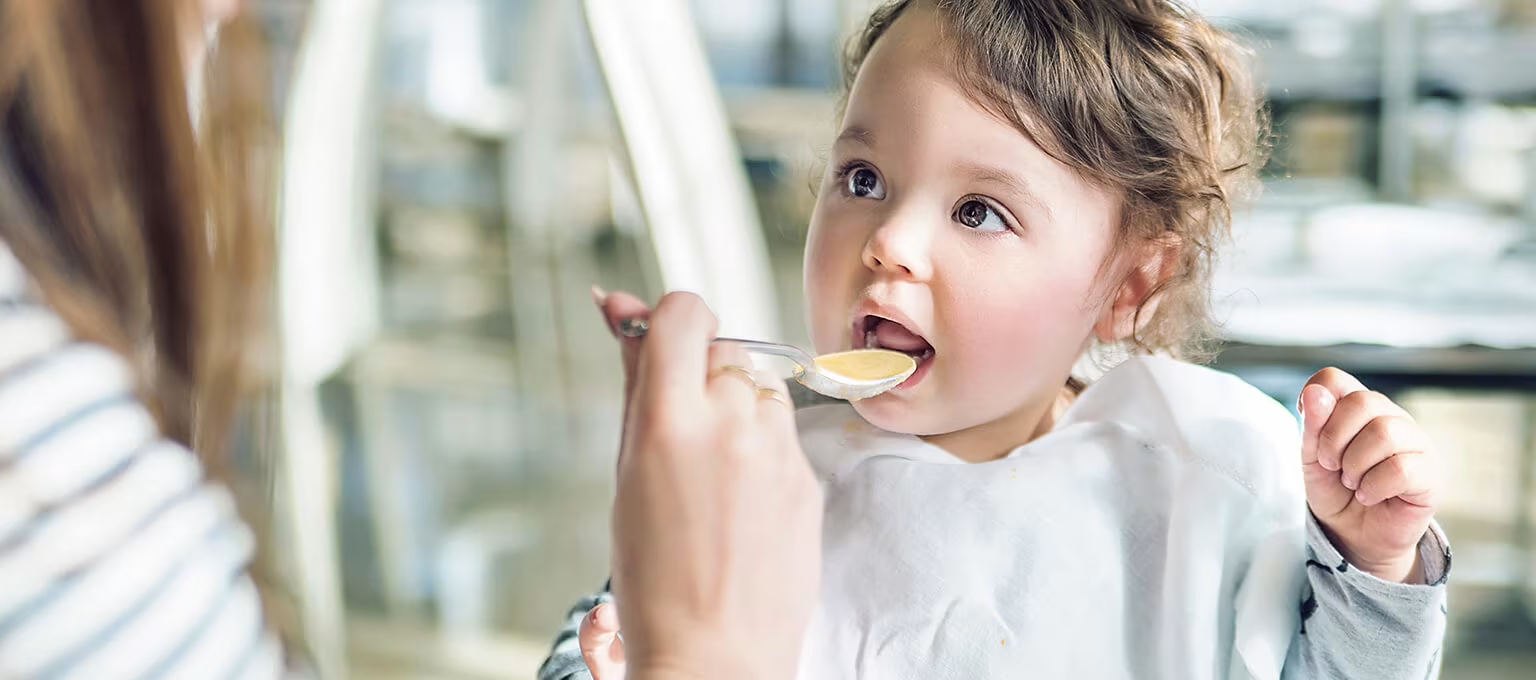
FAQ: When Can Babies Have Honey?


You may have heard about honey’s antioxidant and antibacterial properties, which make it seem like a magical ingredient. Or you may just love the taste of it! Either way, it's important to know that honey isn’t safe for babies.
Read on to find out when babies can have honey, why honey is bad for babies, and learn about infant botulism and the signs to look out for.
Can Babies Have Honey?
Newborns and infants under 12 months of age can’t have honey—even a tiny bit! You should avoid giving your baby honey in food or drinks, processed foods containing honey like honey graham crackers, and never dip a pacifier in honey.
This restriction is due to the risk of infant botulism, a serious illness caused by ingesting Clostridium botulinum spores. These spores can colonize an infant's immature digestive system and produce harmful toxins.
Can Infants Have Cooked Honey?
It’s best to avoid giving honey to your baby, whether it is raw or cooked. Even if honey is used as a sweetener in baked goods, do not offer it to your little one until they are over one year old.
Another common question is what alternatives to use instead of honey for a baby’s cough. Honey can soothe coughs in children over one year old due to its throat-coating properties. However, for infants under 12 months, honey is not safe because of the risk of infant botulism. For younger infants, alternatives include using saline nose drops to clear nasal congestion or running a cool-mist humidifier in the child's room to ease breathing. Always consult with a healthcare provider before trying new remedies for your baby's cough.
Why Can’t Babies Have Honey? Is It Bad for Them?
So, as we’ve mentioned above, babies under 12 months should not be given honey. But why is honey harmful to infants? Honey contains bacteria that an infant’s developing digestive system can’t handle. Eating honey can cause your baby to become ill with a condition called infant botulism. Learn more about infant botulism and its symptoms in our section below.
As a reminder, you may have noticed that nearly every jar of honey carries the warning not to give honey to children who are under 12 months of age.
When your child is at least 1 year old, they can eat honey. By that point, their digestive system will be mature enough to process the bacteria in honey without it causing illness.
In fact, it’s recommended to avoid giving your little one foods or drinks with added sugar or other sweeteners until they’re at least 2 years old. Once your baby starts eating solids at around 6 months, give them whole fruits rather than sweetened foods or drinks. Added sugar can lead to weight gain and tooth decay in children.
If you’re also wondering when you can give your baby juice, the answer is after they turn a year old. But as we mentioned above, whole fruits offer more fiber and less sugar than fruit juices, therefore it’s best to limit your little one’s intake of juice.
Can 2-Year-Olds Eat Honey Safely?
Yes. Once your child turns one year, they can safely have honey without the risk of infant botulism.
My Baby Ate Honey, What Should I Do?
Giving honey to your baby may lead to infant botulism, which is caused by the bacteria in honey. If your baby accidentally ate honey, keep an eye out for any potential symptoms of infant botulism listed below. Symptoms can range from mild to severe and typically appear within 12 to 48 hours of ingestion. If you notice any of the symptoms, contact your baby’s healthcare provider immediately.
Infant Botulism from Honey
Botulism is an illness caused by the toxins produced by Clostridium botulinum, a type of bacteria that is found in honey and may also be found in other foods, such as home-canned foods that have become contaminated.
Infant botulism specifically refers to the illness when it is contracted by babies who are younger than 12 months old.
Signs and symptoms of botulism in infants from honey or other sources can include:
In severe cases, infant botulism can be life-threatening to babies under 12 months. If you notice any of the signs of infant botulism, especially if your baby has recently consumed honey, contact their healthcare provider immediately.
The Bottom Line
To keep your little one healthy and safe, wait until their first birthday has passed to introduce them to honey. There will be plenty of time for them to sample the flavor and health benefits of honey when they’re older. In the meantime, they'll thrive on their diet of breast milk or formula, as well as the wide new world of solid foods they're learning to enjoy.
You can find more information on feeding your little one and the appropriate times to introduce certain foods in the informative section of our website dedicated to feeding. Discover when babies can eat eggs, when to introduce rice cereal, the best finger foods to give your little one, and more.
Don’t forget that you can get rewarded for all those diaper changes by downloading the Pampers Rewards App. For every Pampers product you scan, you’ll get Pampers Cash, which can be redeemed for discounts.
- American Academy of Pediatrics. Caring for Your Baby and Young Child: Birth to Age 5, 7th ed. (New York: Bantam Books, 2019).
- American Academy of Pediatrics. “Added Sugar in Kids’ Diets: How Much Is Too Much?”
- CDC. “Food and Drinks to Avoid or Limit.”
- Cleveland Clinic. “When Your Baby Can Have Honey.”
- Healthy Children. “AAP Recommends No Fruit Juice for Children Under 1 Year.”
- Healthy Children. “Botulism.”
- Kids Health. “Why Should Babies Not Have Honey?”
- Mayo Clinic. “Cold remedies: What works, what doesn't, what can't hurt.”
- Mayo Clinic. “Is it true that honey calms coughs better than cough medicine do?”
Read more about Baby
Join a World of Support
through Pregnancy and Parenthood.
TRACK WITH TOOLS
LEARN WITH EXPERTS
GET REWARDED


